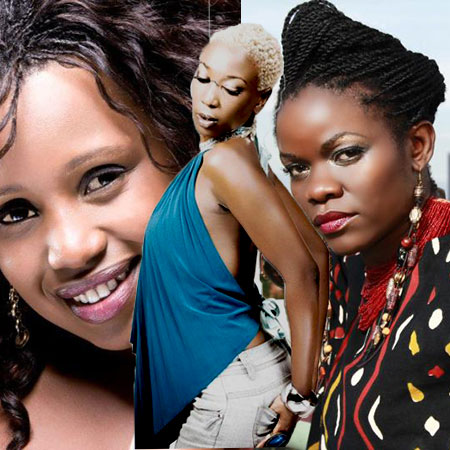
Whether it is out of poor management, dismal focus, lack of staying power and real talent or simply neglect by the masses, Kenyan female artistes hardly make it beyond the surface in an industry that has enjoyed male dominance over the years.
One can list up to 60 female singers in the industry; even more, but hardly do we see them perform in shows, their music is nowhere to be found.
Forget the big dreams of hitting the international stage and winning continental awards as did Amani, Wahu and Nazizi a while ago, or even getting international signings such as did Xtatic some few years ago, our female artistes are simply fighting for survival.
“It is heart-breaking when female rappers always have to play second fiddle and have to work hundred times harder than our male counterparts to be recognised,” says Xtatic. “People always find it easier to shoot down female rappers. That is my frustration.”
According to Xtatic, who recently took to her Facebook account to explain her observations, there is a level of disregard when it comes to the way the industry views female artistes.
“It is funny how you can be the ‘dopest’ female rapper, do more projects than male rappers, have more content than male rappers, have flow more than male rappers and even understand rap more than most male rappers but still be doubted on a list of best or greatest rappers,” she wrote, probably in reference to a list of best hip hop artistes in Kenya by a local website.
According to her, male rappers, and basically male artistes, have it easier.
“I’ve come to understand that as long as you are male and just rap, it doesn’t matter if you are way whack, they’ll still give you a position,” says the artistes, who was at some point signed to Sony Records.
Gospel artiste Size 8, who is the most hardworking and consistent female artiste in the country in regards to hits, attests to gender discrepancies in the industry, but is quick to say how there is no room for complaining.
“When I was starting out, I was given one major lesson by Amani. She told me to have a man’s heart if I was to make it in the industry. I have carried that lesson till now and it has proven true,” she said.
“I have to work hard and compete with the male artistes every day. I have to hustle like the men and ensure my name is among the best.”
Her sentiments were echoed by TPF finalist and celebrated artiste Amileena, who says it like it is.
“It is all down to hardwork. If you are good, whether a male or female artiste, the world will notice,” Amileena tells Pulse.
Amani herself has one album in a career that spans around 15 years. Tamani, the album, came out in 2006 and has all the hits her fans loved from 1999, when her breakthrough hit Ninanoki came out. She has in the meantime gone cold with sporadic releases, once in a while.
Wahu, the other leading light and award-winner is also holding on, even as the industry reasons that a lot more should come from her.
One time promising artistes such as Nazizi, Marya, Choku, Lady Bee, Petra, Mimmo, Alicios, Kelma, Adelle Onyango, Mercy Myra, Sarah Mitaru, Kendi, Mumbi and Miss Karun now seems to be struggling, with minimal publicity going their way.
The likes of Victoria Kimani and Stella Mwangi have now stepped up their game and acquired international status. Even then, they are not getting as much attention as they deserve locally.
Versatile stars like Muthoni DQ, Sage, Ruth Matete, Kambua, Alice Kamande, Atemi and Gloria Muliro don’t even seem to enjoy the full fruit of their hard labor. And it remains in doubt if the tens of young female artistes who are now launching their careers will ever be heard, if this trend goes on.
“The phenomenon is world over and male artistes are always more in number and in visibility,” says Grandpa Records CEO, Refigah.
“The industry is like politics. There is a lot of backstabbing and mudslinging and one has to have a thick skin to survive. I personally have mad respect for the few ladies who are making major moves because compared to men, they are less disadvantaged in this industry,” he adds.
 The Standard Group Plc is a multi-media organization with investments in media
platforms spanning newspaper print
operations, television, radio broadcasting, digital and online services. The
Standard Group is recognized as a
leading multi-media house in Kenya with a key influence in matters of national and
international interest.
The Standard Group Plc is a multi-media organization with investments in media
platforms spanning newspaper print
operations, television, radio broadcasting, digital and online services. The
Standard Group is recognized as a
leading multi-media house in Kenya with a key influence in matters of national and
international interest.









